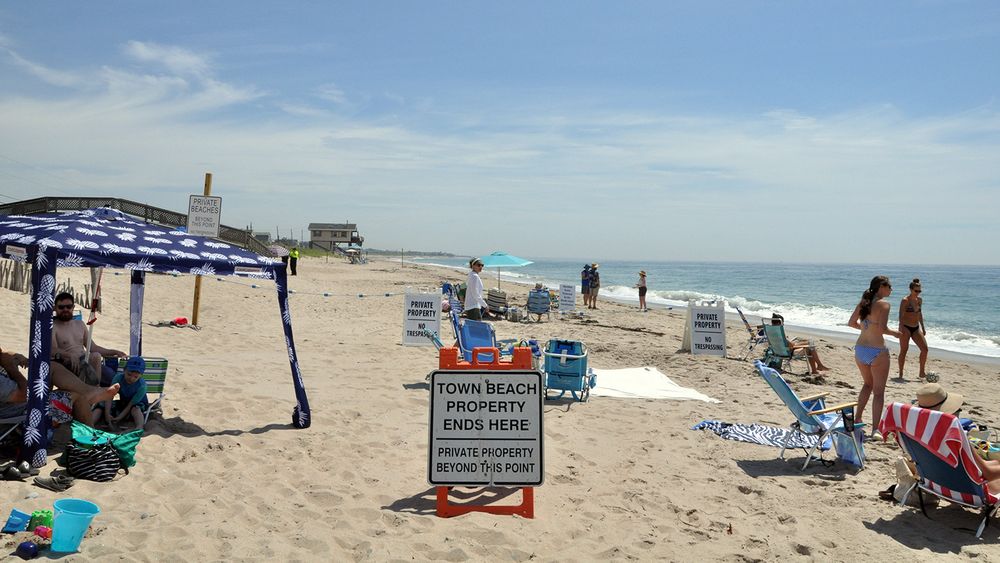 Coastal Resources Management Council spokesperson Laura Dwyer said the plan identifies nine priority areas, including public access, wetlands, coastal hazards, marine debris, aquaculture, and siting for energy and government facilities.
Coastal Resources Management Council spokesperson Laura Dwyer said the plan identifies nine priority areas, including public access, wetlands, coastal hazards, marine debris, aquaculture, and siting for energy and government facilities.
“This assessment helps us fine tune those areas,” she said, “and also could identify information gaps, areas of need that our coastal program needs to fill in to address.”
The agency is evaluating its management programs and key goals as part of a periodic requirement for certain funding set by the National Oceanic and Atmospheric Administration.
“This is a really great way for us to identify our strengths, maybe any potential weaknesses, or areas we can improve,” Dwyer said of the assessment, which NOAA requires every five years. “What results from that is we continue to get funding for important projects related to those areas.”
The plan, known as the “Draft 309 Assessment and Strategy for Enhancement,” identifies sea level rise, storm surge, and erosion as the most significant coastal hazards facing Rhode Island, and proposes more research and training around shoreline adaptation, among other goals.
Dwyer said she expects to receive comments regarding shoreline access, a perennial hot button issue that’s getting attention this summer because of COVID-19-related beach restrictions.
Some people are already talking about the public comment period on social media.
“Given the pandemic and people’s desire this summer to get out in places where there aren’t large crowds, I think it’s just added an extra layer to the public access discussions,” she said. “I saw the public respond to our Draft 309 Assessment and Strategy by saying, ‘Oh, public access. It’s right at the top of this list. Let’s talk about it. Let’s comment. Let’s give CRMC feedback.’”
The draft document outlines the status of shoreline accessibility and recent developments, and ranks public access as a medium priority issue.
In the draft, the CRMC acknowledges the value Rhode Islanders place on public access but says emerging issues such as climate change, sea level rise, and offshore wind development take higher priority.
The draft plan and information on how to submit feedback are available on the CRMC website. The public comment period will close August 31.
Alex Nunes can be reached at anunes@thepublicsradio.org.

